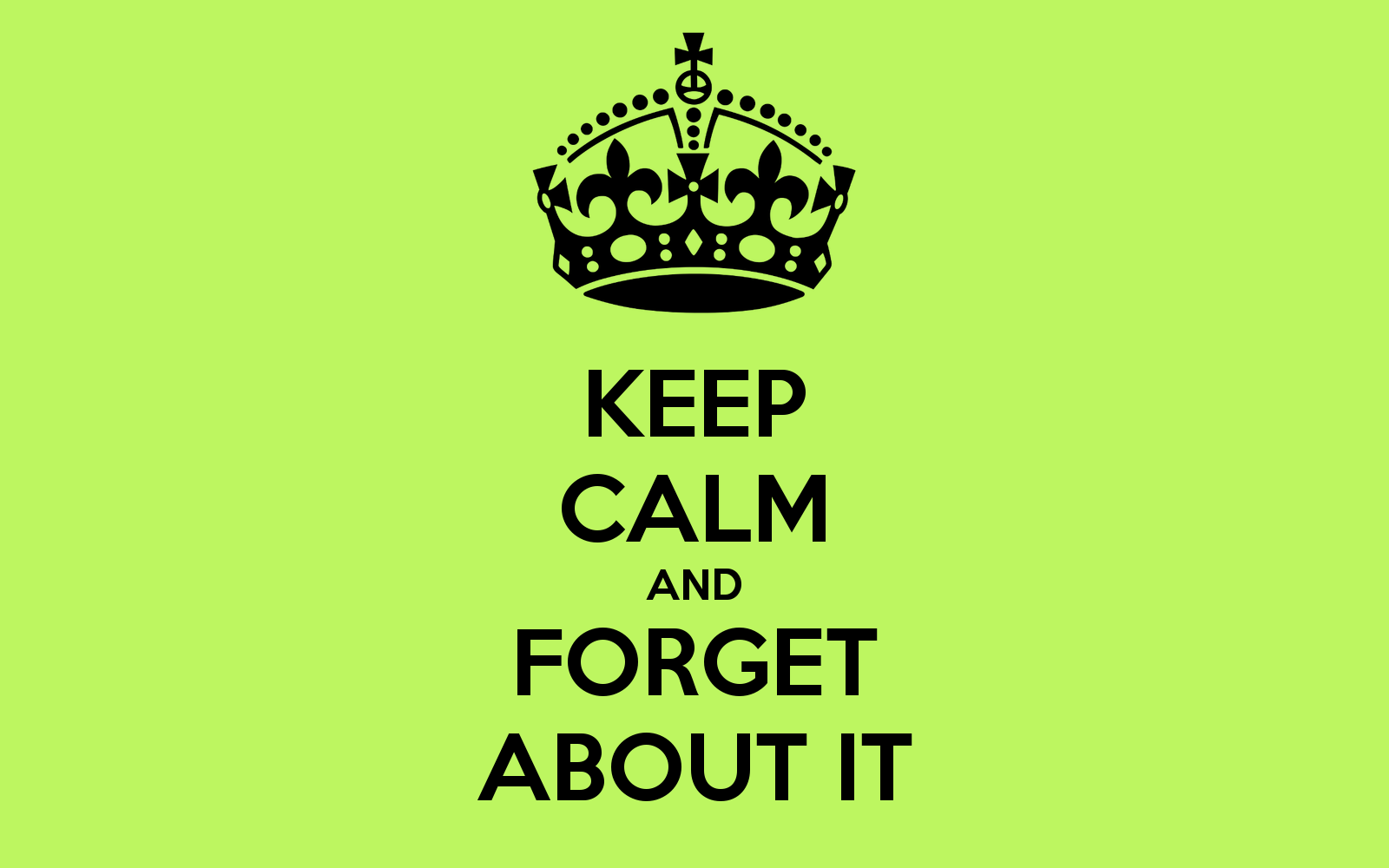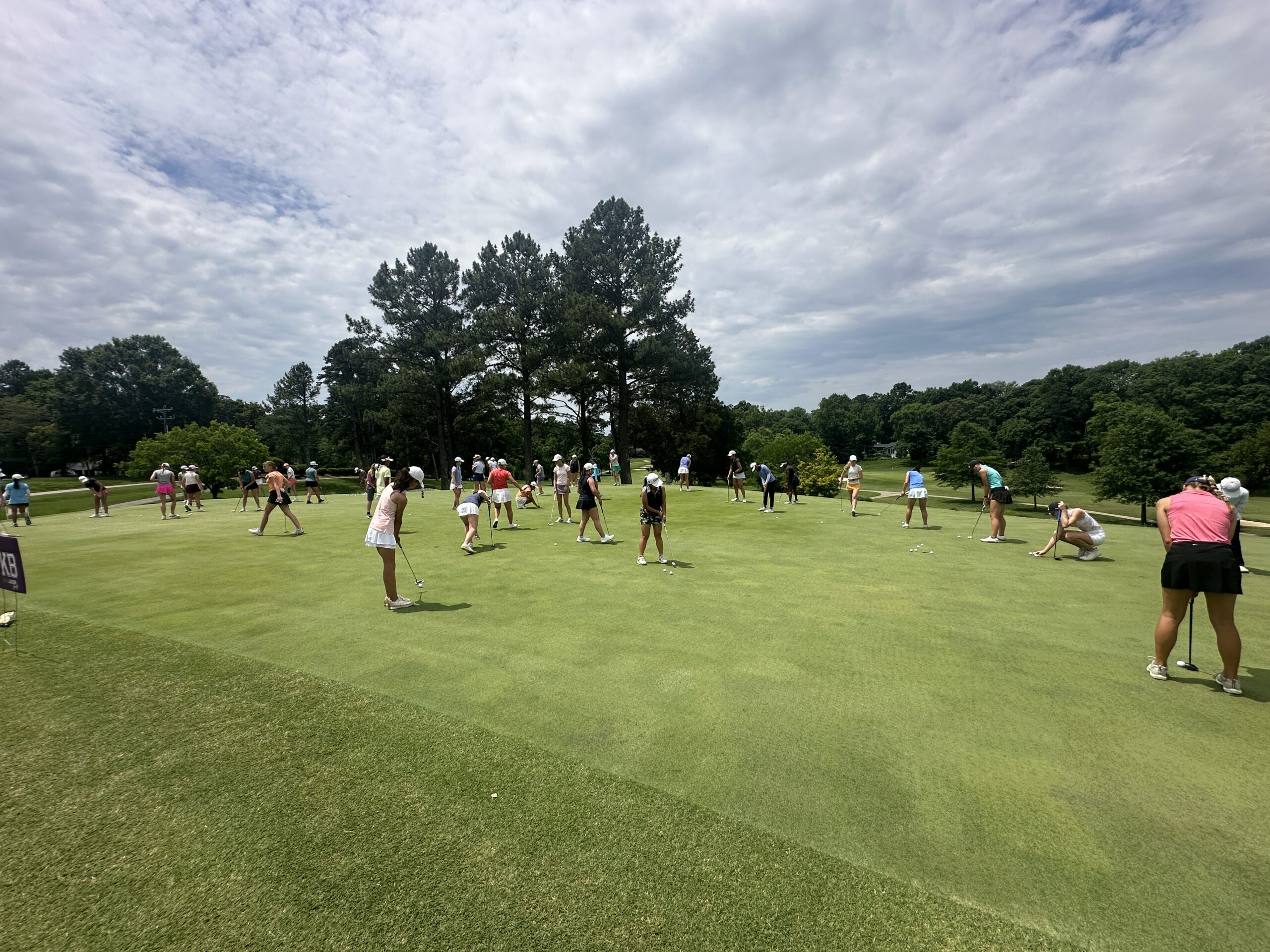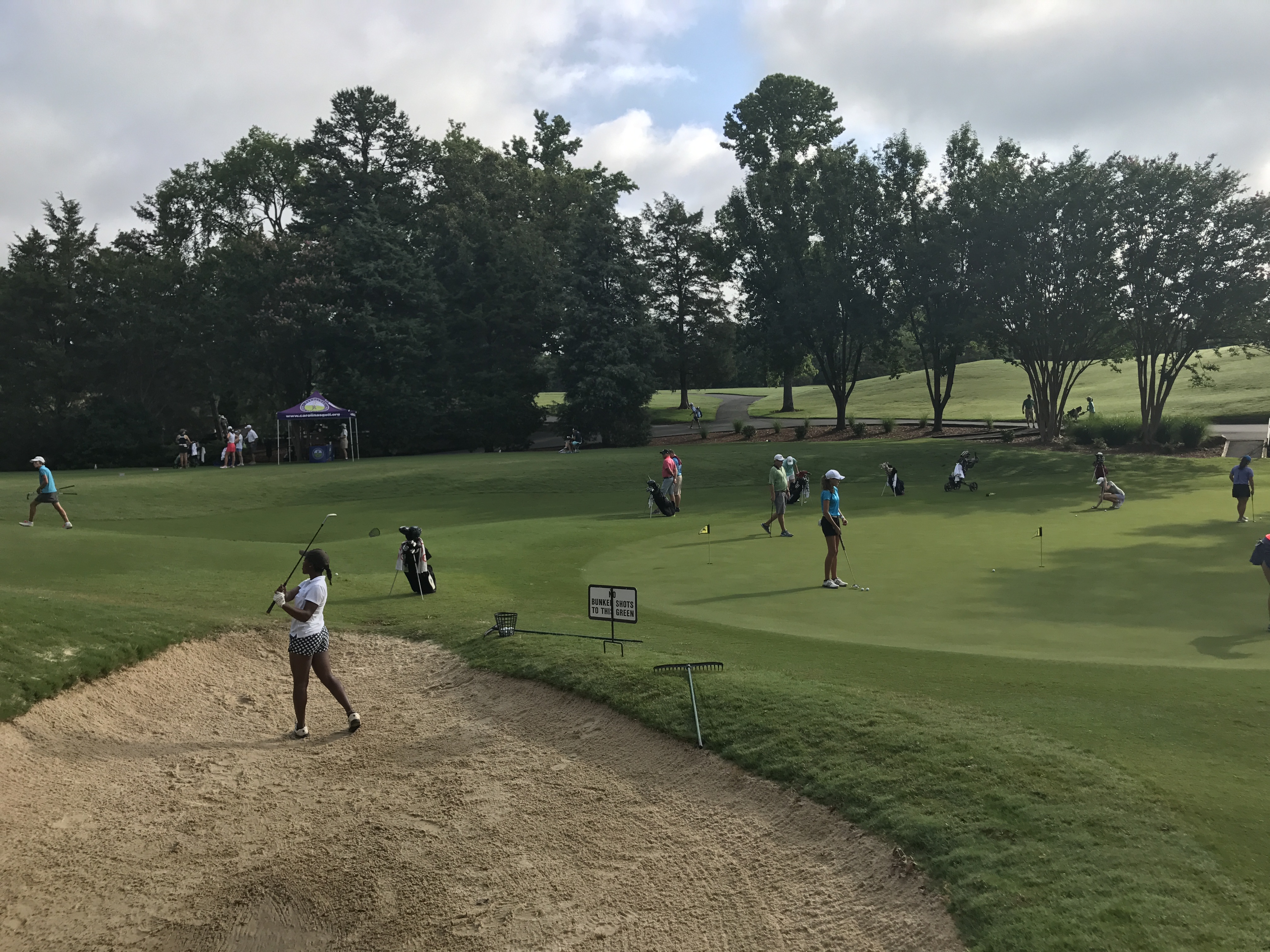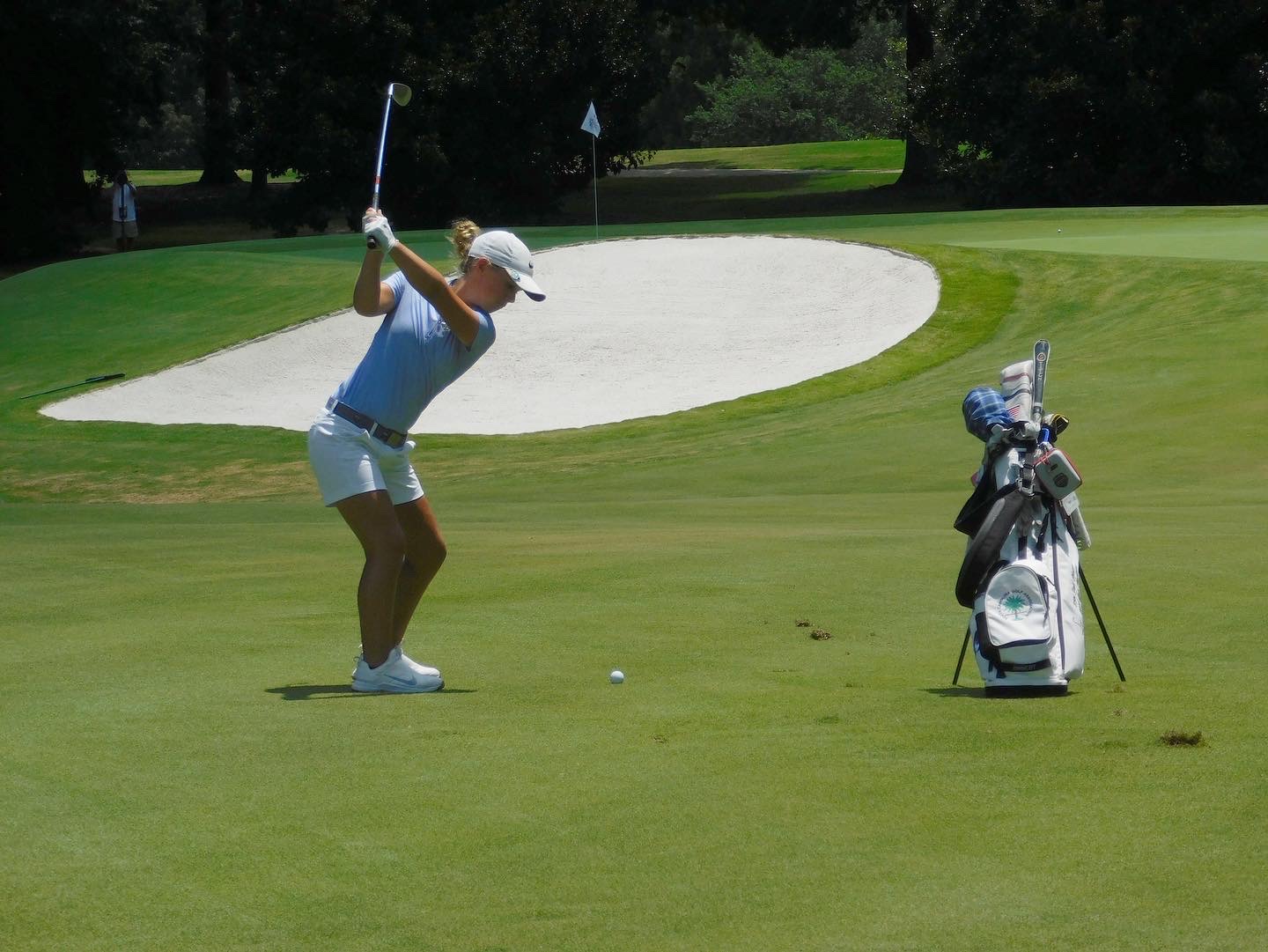As a player myself, I know how tough it is to let go of a bad shot or bad hole. The year I finished runner up at the US Women’s Am I had a sticker on my golf bag that said “Forget About It”. We were playing just outside of NYC and I got the sticker out of a machine at dinner early in the week. The cameras would occasionally show the sticker on TV and the media would even ask me about it after my rounds. It became my mantra for the week and even later on in my professional career.
I know that many times you tell yourself to put a bad shot or bad hole behind you, yet it still carries over and affects the rest of your round. You lose confidence and find yourself hesitant over the next shot. You start to worry about what you are going to shoot and how a bad score will look. You tell yourself that you need to make a birdie to get it back but instead it just escalates even more. Bad holes and bad shots are part of golf. If you ever watch the pros on tour, you will see how they react to bad shots. Occasionally you will see a player get upset but typically the pros just accept it and move on. They know that letting their emotions get the best of them will only make it worse.
I know it’s easier said than done but learning to let go of bad shots is a vital part of being a complete player. It is one of the first things a coach looks for when they are recruiting a player. They want to see how you handle adversity and how you bounce back. A great tool I used throughout my career after a bad shot or hole was to pick a spot a few yards ahead of me. I allowed myself to be upset and angry until I reached that spot. Then I had to completely let it go and move on to the next shot. I would take a deep breath, hold my head up and walk on to the next shot. Body language plays a huge part in letting go of bad shots. If your shoulders and head drop then it’s almost impossible to keep a positive attitude and not let previous shots affect the rest of your round. Coaches are watching these little cues and watching your reaction to bad shots. It’s OK get upset at yourself for a bad shot but it’s not OK to let it affect the next shot. You have to just Forget About It!








Leave A Comment